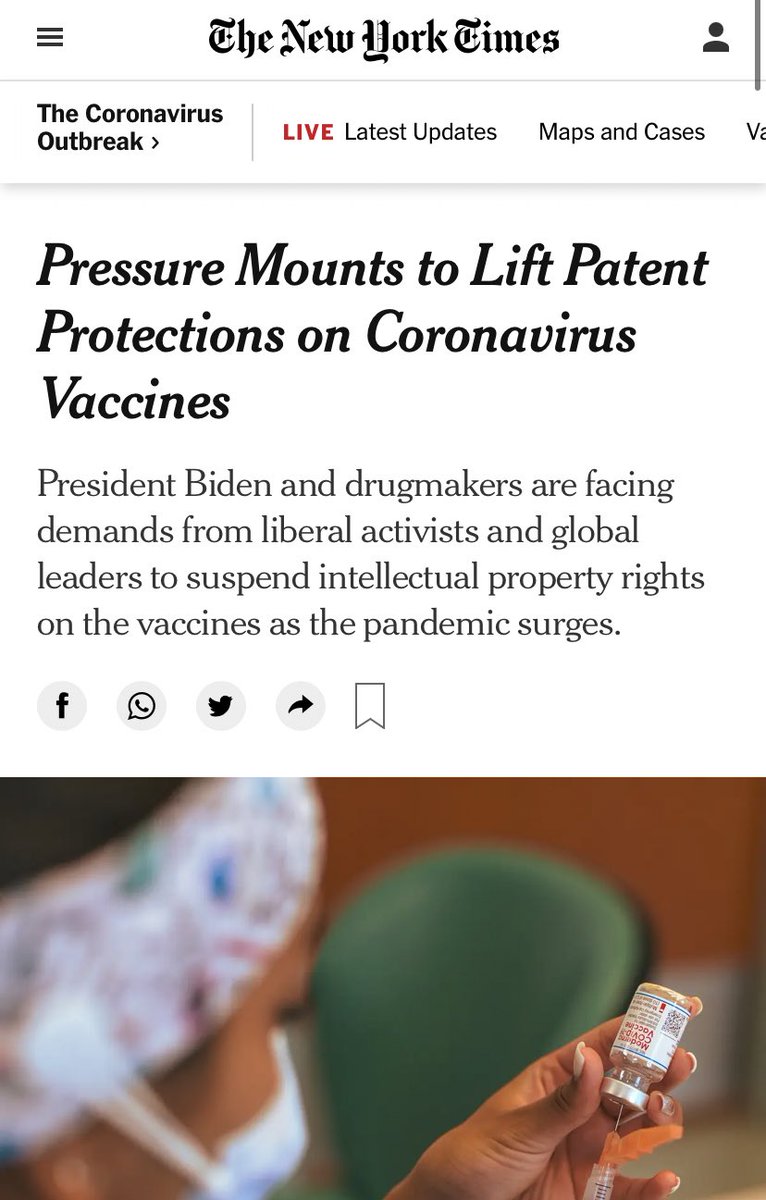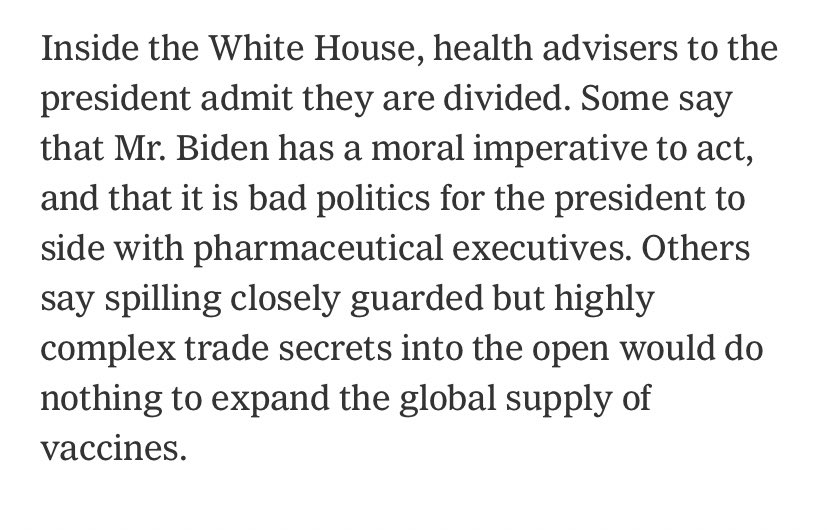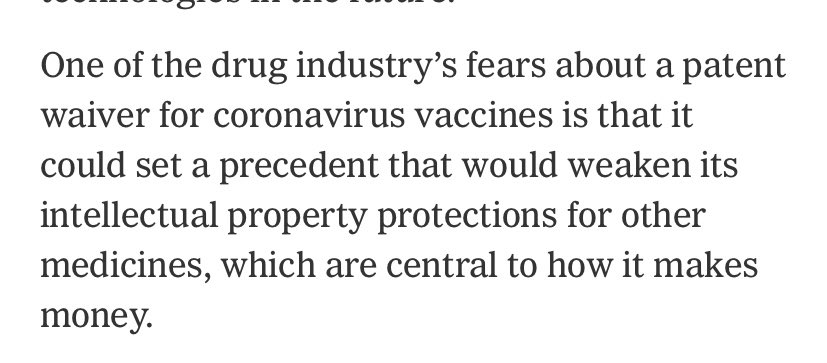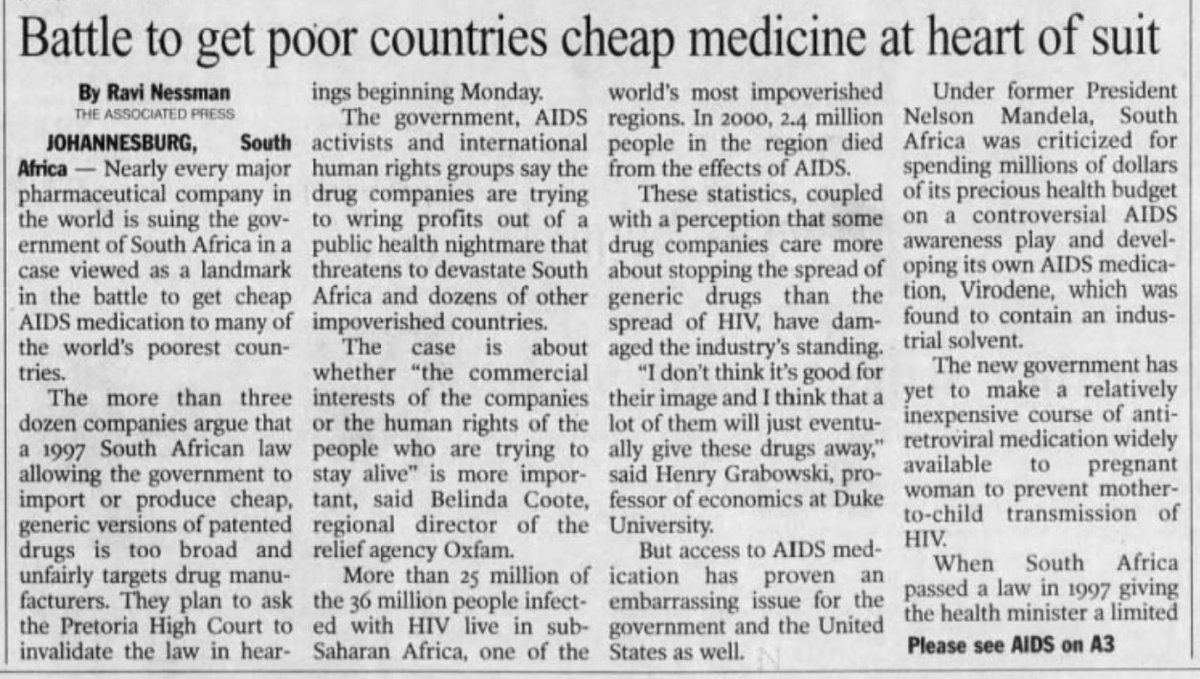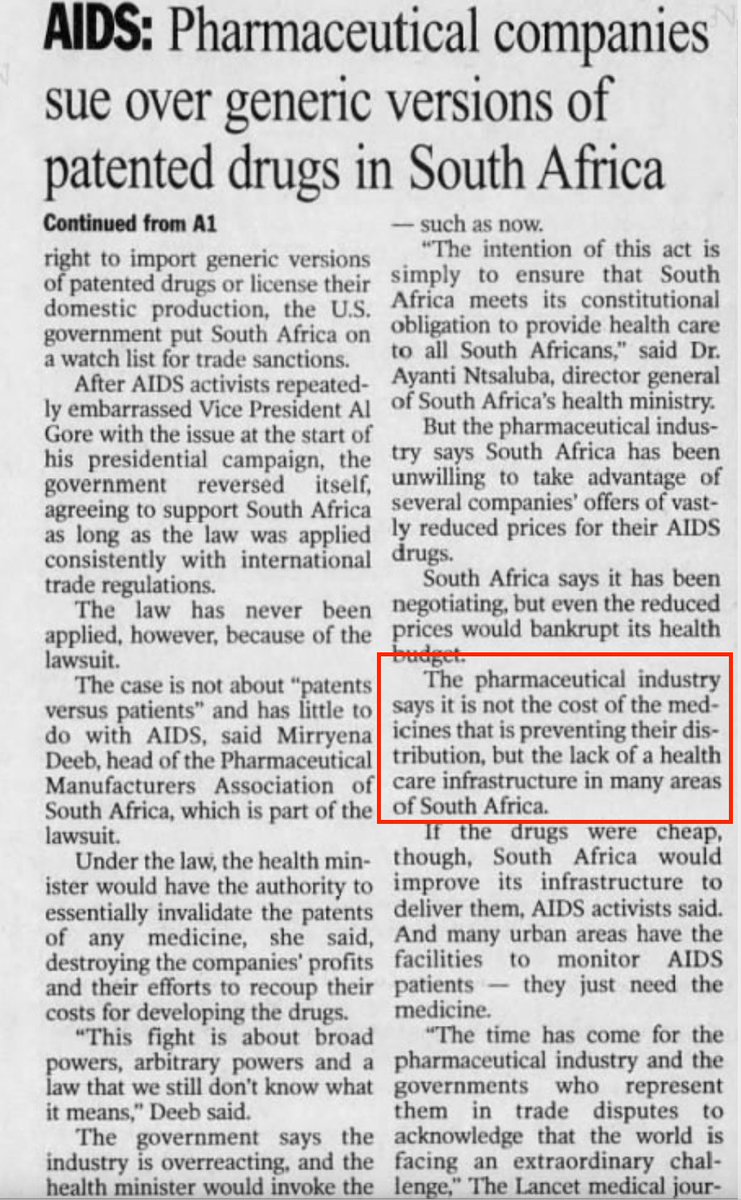
Devils is on the details but if it’s anything close to the India/South Africa proposal this would be ground shifting. But again, depends very much on the actual terms of the waiver
https://twitter.com/jendeben/status/1390018886960099330
Biden announced the US would stop supporting the Saudi war in Yemen then two months later we learned they didn’t really at all, so the fine print is important here!
Note the Biden admin is not supporting THE TRIPSwaiver that’s been proposed by a new one that’s being negotiated now. So will likely look very different
But* a new one
• • •
Missing some Tweet in this thread? You can try to
force a refresh











